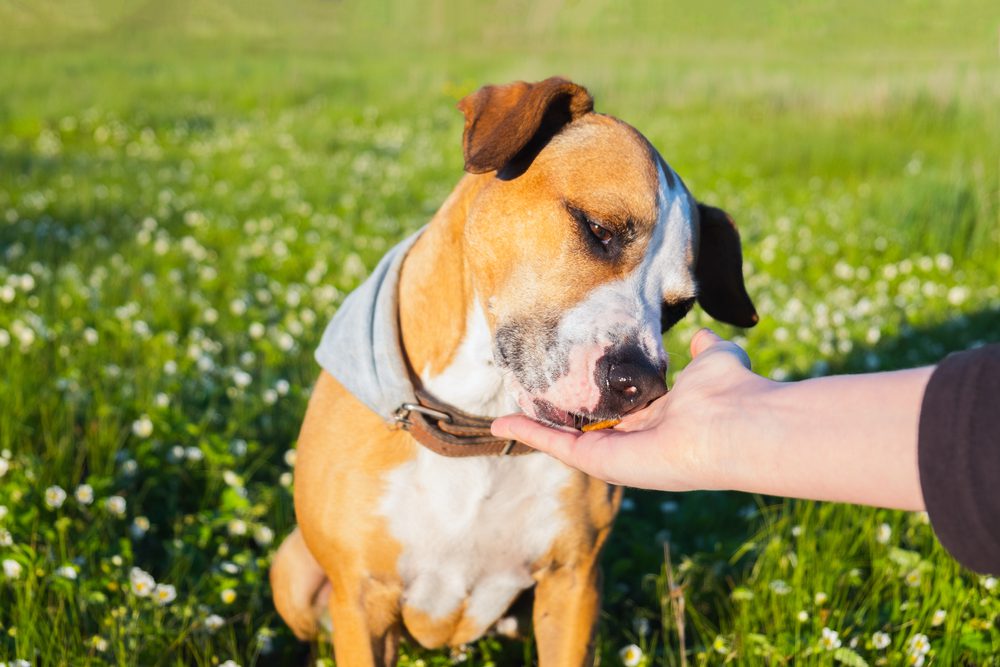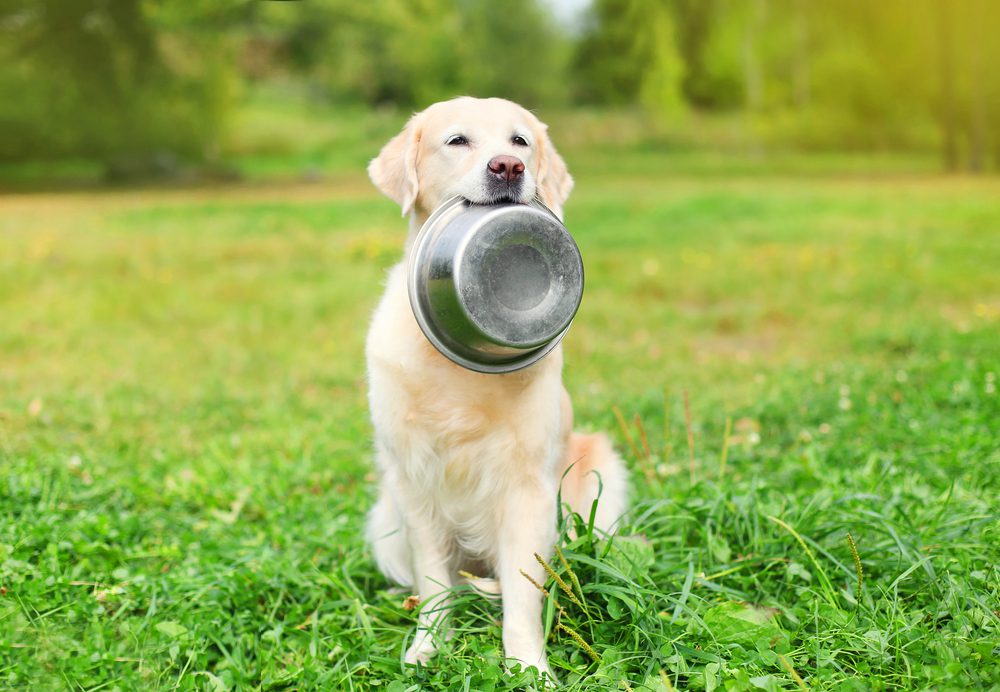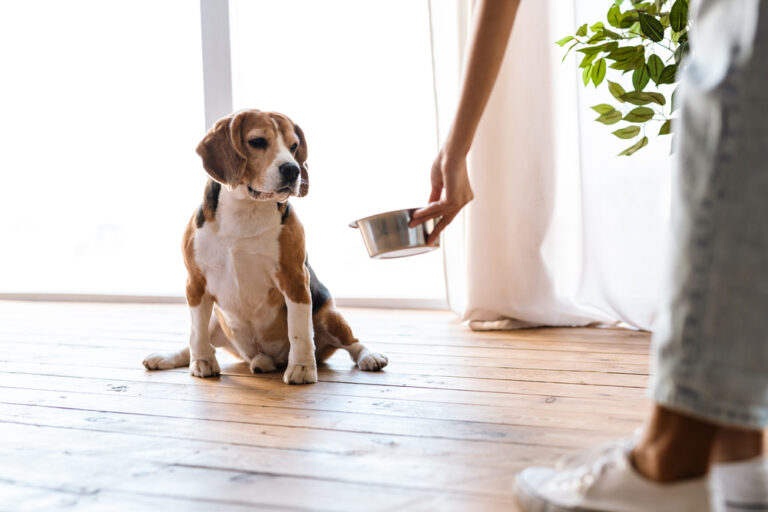When a dog refuses to eat, it is always a cause for concern. Food is not just about filling their stomachs; it provides the energy to walk, play, and keep their organs healthy. Without food, a dog’s body begins to use stored energy, and over time, this can lead to serious problems. Giving them a balanced diet and the right supplements, such as the SecureBoost Immunity Boosting Supplements, can help maintain their health and prevent issues before they start. Knowing how long can dogs go without food helps you decide when to act quickly and when to monitor calmly.
How Many Days Can A Dog Survive Without Eating
A fit adult dog is generally able to go without food for around three to five days, provided they have access to fresh, clean water. However, this is purely a survival timeframe and should never be considered safe or healthy.
After just one day without food, the dog’s body begins to use stored fat for energy. Soon after, it will start breaking down muscle tissue to keep vital organs functioning. This process reduces the body’s defenses, leaving the dog more prone to illness.
For puppies, senior dogs, or those with medical issues, the safe time without food is much shorter. Puppies can experience harmful drops in blood sugar in as little as eight to twelve hours without eating. Older dogs can lose energy and weight more quickly because their bodies are less efficient.
Common Reasons Why Dogs Stop Eating

There are many possible reasons for a dog’s loss of appetite. Some causes are minor and short-lived, while others need prompt attention from a veterinarian.
Illness or Injury
Dogs may refuse food when they feel unwell. Stomach upset, vomiting, diarrhea, infections, and diseases affecting the liver, kidneys, or pancreas can all cause appetite loss. Pain from injuries or chronic conditions like arthritis can also make eating uncomfortable.
Dental or Mouth Problems
Broken teeth, gum disease, mouth ulcers, or objects stuck between the teeth can make chewing painful, causing a dog to avoid eating altogether.
Stress or Anxiety
Moving to a new home, loud noises such as fireworks, the arrival of a new pet, or changes in routine can make a dog feel unsettled and less interested in food.
Sudden Diet Changes
Dogs become used to the smell, taste, and texture of their regular food. Switching to a new type of food too quickly can make them reject it.
Hot Weather
Some dogs naturally eat less in the summer months, but they should still be monitored to ensure they are drinking enough water.
Why Water Is Even More Important
While knowing how long can dogs go without food is important, water is even more critical. Dogs can live for a few days without eating, but without water, they may last only two to three days. Dehydration can set in fast and pose a serious risk to a dog’s health.
Signs of dehydration include a dry mouth, lethargy, sunken eyes, and skin that does not return to normal quickly when gently pinched. If a dog refuses both food and water, it is an emergency that requires immediate veterinary attention.
How Long Is Too Long To Wait
Even though a healthy adult dog might survive up to five days without eating, it is never safe to wait that long before acting. For healthy adults, if there is no eating for more than 24 hours, a veterinary check is necessary. For puppies, the safe period is only eight to twelve hours, and for seniors, it is best not to let them go more than a single day without food. Acting early increases the chances of recovery.
Health Risks Of Not Eating
Going without food for too long can lead to serious problems. The immune system becomes weaker, making it harder for the dog to fight infections. The body starts using muscle tissue as fuel for energy. Energy levels drop, causing the dog to become less active and playful. The organs, including the heart, liver, and kidneys, face extra stress. In some cases, digestive issues can develop, making it harder for the dog to eat normally again.
How To Encourage A Dog To Eat
If your dog refuses food, there are a few things you can try before visiting the vet. Offering a fresh portion of food can help if the food has lost its smell. Gently heating the food can enhance its aroma and make it. Adding a small amount of wet food, boiled chicken, or low-sodium broth can tempt a reluctant eater. Feeding in a quiet, comfortable area away from noise and other pets can also help. Reducing treats ensures they are hungry for their main meals. Checking the mouth for visible dental problems is also important.
If there is no improvement within 24 hours for healthy adults, or sooner for puppies and seniors, seek veterinary help. If appetite loss is due to illness or recovery, products like the New Puppy Bundle can support long-term health and help make feeding easier.
Special Care For Puppies And Senior Dogs

Puppies have small stomachs and fast metabolisms, meaning they need frequent meals to stay healthy and grow properly. Missing even one or two meals can cause low blood sugar, weakness, and, in severe cases, seizures.
Senior dogs often have slower digestion and may already have health problems. Skipping meals can cause quick weight loss, reduced muscle strength, and aggravation of existing health issues. Loss of appetite in both puppies and seniors should be treated as urgent.
When Appetite Loss Becomes An Emergency
Immediate veterinary attention is needed if a dog refuses both food and water, shows signs of dehydration, has vomiting or diarrhea alongside appetite loss, appears weak or disoriented, or has a swollen or painful abdomen. These symptoms could indicate life-threatening issues such as poisoning, severe infections, or blockages.
The Importance Of Good Nutrition
Good nutrition is the foundation of a healthy, happy life for a dog. They require protein to maintain muscle, healthy fats for energy and a shiny coat, and vitamins and minerals for strong immunity and organ function. Feeding a balanced diet every day reduces the chances of appetite loss and supports recovery after illness.
Trusted Veterinary Resource
For more professional advice on loss of appetite in dogs, PetMD’s guide offers veterinary insight into possible causes, warning signs, and treatment options.
Final Thoughts
The answer to how long can dogs go without food is that while a healthy adult might survive three to five days, this is never safe to test. Puppies, seniors, and dogs with health conditions have a much shorter safe window. Loss of appetite should always be taken seriously. By acting quickly, offering fresh and tempting food, creating a calm environment, and contacting your vet when needed, you can protect your dog’s health and help them get back to eating happily.
FAQS
1. How long can dogs go without food if they are healthy?
A healthy adult dog may survive three to five days without food but should see a vet after 24 hours of not eating.
2. What should I do if my dog refuses to eat?
Offer fresh, tempting food and seek veterinary advice if refusal lasts more than a day.
3. Can a dog survive longer without food if they are drinking water?
Yes, but prolonged lack of food still causes weakness and health problems.
4. Why is my dog not eating but still drinking water?
It may be mild stomach upset or dental pain, but a vet check is needed if it continues.
5. When is loss of appetite in dogs an emergency?
If they refuse both food and water or show other illness signs, seek immediate veterinary care.





